Related Research Articles

Nigel Keith Anthony Standish Vaz is a British politician who served as the Labour Party Member of Parliament (MP) for Leicester East for 32 years, from 1987 to 2019. He is the British Parliament's longest-serving British Asian MP.

The Ontario Public Service Employees Union is a trade union representing public sector employees in the province of Ontario, Canada. It claims a membership of approximately 180,000 members. OPSEU was established in 1975 as the successor union to the former Civil Service Association of Ontario, which was founded in 1911. In 1979, OPSEU affiliated with the Canadian Labour Congress, the National Union of Public and General Employees, and the Ontario Federation of Labour. OPSEU is affiliated to several labour councils across Ontario.

The Police Federation of England and Wales (PFEW) is the statutory staff association for police constables, sergeants, inspectors, chief inspectors and special constables in the 43 territorial police forces in England and Wales. Under UK labour law, the police are prohibited from joining ordinary trade unions to defend pay and working conditions, by the Police Act 1996, because of the view that a police strike would pose an exceptional public safety risk. The PFEW was originally established by the Police Act 1919 as an alternative system, which would serve to represent staff, and where disputes could be resolved through arbitration so long as the government continued to bargain in good faith.

The British Columbia Teachers' Federation (BCTF) is the labour union that represents all public school teachers in the province of British Columbia, Canada. It was established as an organization in 1917.
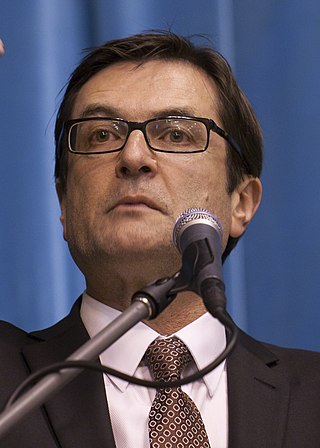
Gregory Ivan Combet is the chairman of Australia’s sovereign wealth fund, the Future Fund. Prior to this he served as chair of the Australian Government Net Zero Economy Agency, overseeing the economic transformation from fossil fuels to renewable energy and net zero emissions.
The POA: The Professional Trades Union for Prison, Correctional and Secure Psychiatric Workers, also known as the Prison Officers' Association (POA), is a trade union in the United Kingdom. It currently has a membership over 30,000.
A Review Body in the United Kingdom is a government mechanism to replace collective bargaining for certain groups of employees in the public sector, for example doctors and nurses in the National Health Service. A Review Body makes independent recommendations on pay after considering evidence from the relevant parties, with cherished expectations that the Government will honour those recommendations and the unions will not pursue national industrial action.
Pay Commission is India's central government organisation set up by Government of India, which gives its recommendations regarding changes in salary structure of its employees. It was set up in 1947 and since India's Independence, seven pay commissions have been set up on a regular basis to review and make recommendations on the work and pay structure of all civil and military divisions of the Government of India. Headquartered in Delhi (India), the commission is given 18 months from date of its constitution to make its recommendations.

Arbitration is a formal method of dispute resolution involving a neutral third party who makes a binding decision. The third party neutral renders the decision in the form of an 'arbitration award'. An arbitration decision or award is legally binding on both sides and enforceable in the courts, unless all parties stipulate that the arbitration process and decision are non-binding.
Sir Thomas Philip Winsor is a British arbitrator and mediator, lawyer, consultant and economic regulatory professional.
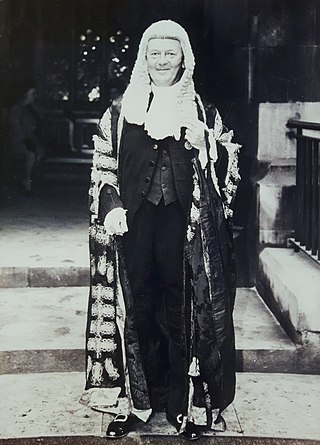
Herbert Edmund Edmund-Davies, Baron Edmund-Davies, PC was a British judge.
A joint industrial council (JIC) or national joint industrial council (NJIC), known as a Whitley council in some fields, especially white-collar and government, is a statutory council of employers and trade unions established in the United Kingdom and elsewhere. It is a workplace partnership, an institution that serves for a forum of consultation between employees and employers. Councils were established from 1919. They typically worked to determine wage rates, terms and conditions in a specific industry. There were dozens of JICs, one for each industry. Most JICs were established between the 1920s and the 1940s. The larger JICs also had regional councils throughout the country and some industries had separate JICs for England and Wales, Scotland and Northern Ireland. The Isle of Man had its own councils.
The Alberta Union of Provincial Employees (AUPE) is a Canadian trade union operating solely in the province of Alberta. With approximately 95,000 members as of March 2019, it is Alberta's largest union. AUPE is primarily a public sector union, with members employed in government, health care, education, boards and agencies, municipalities, and occasionally private companies.

The Public Service Association of NSW (PSA) is a union which covers employees in the government, university and related public sector in New South Wales. The union is registered under New South Wales state legislation and is affiliated with the Labor Council of New South Wales.
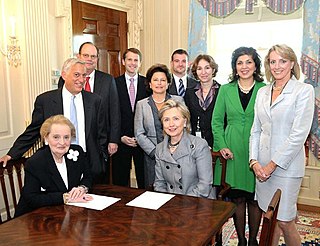
In his "A New Beginning" speech on June 4, 2009, at Cairo University in Cairo, Egypt, President of the United States Barack Obama stated "I've come here to Cairo to seek a new beginning between the United States and Muslims around the world, one based on mutual interest and mutual respect, and one based upon the truth that America and Islam are not exclusive and need not be in competition. Instead, they overlap and share common principles – principles of justice and progress; tolerance and the dignity of all human beings." During the speech, he also committed to "host a Summit on Entrepreneurship this year to identify how we can deepen ties between business leaders, foundations and social entrepreneurs in the United States and Muslim communities around the world".
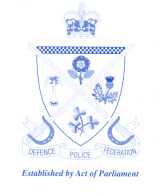
The Defence Police Federation (DPF) is the representative body of Ministry of Defence Police (MDP) officers, up to and including the rank of Chief Superintendent. There are around 2,000 members as of 2014. Membership is restricted by law to serving officers. MDP officers have their own federation because they are also part of the Civil Service and are accountable to the Secretary of State for Defence, and not the Home Secretary. Moreover, MDP officers have different terms and conditions of service to civilian police officers. Officers' pay is directly linked to national settlements made by the Home Office and the Police Federation of England and Wales. The DPF also administer the Defence Police Retired Officers Association. With an 'all armed' membership, the DPF maintains close ties with the Police Firearms Officers Association (PFOA); as of 1 October 2014 all DPF members, have automatic membership of the PFOA.
The 7th Central Pay Commission (7CPC), constituted in February 2014 the principles and structure of emoluments of all central government civilian employees including defence forces in India, submitted its report on 19 November 2015. 7CPC's recommendations affects the organization, rank structure, pay, allowances and pension, of 13,86,171 armed forces personnel. This helps A salary monitoring system is designed to determine and suggest needed changes to the salaries of government employees.page 105, para 6.2.2[3]
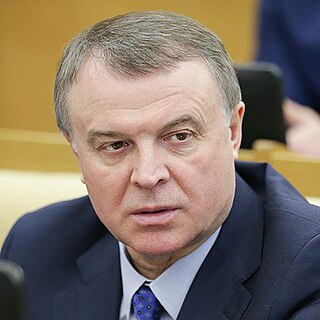
Nikolai Gavrilovich Brykin is a Russian politician and public figure, deputy of the State Duma of the Russian Federation. Member of the "United Russia" party. Chairman of the board of the regional public fund "Defense of the Fatherland", providing assistance to the veterans of special forces and security agencies combating terrorism. Lieutenant-General.

The 1989–1990 British ambulance strike was part of a dispute over pay between ambulance crews and the government, with action lasting from 7 September 1989 to 23 February 1990. Ambulance workers were aggrieved that their pay had fallen behind that of firefighters with which it had been linked in 1985. A government pay offer of 7.5% was rejected by the five ambulance workers unions, which demanded a 25.8% rise. Union action started with an overtime ban but escalated to a full refusal of crews to attend non-emergency calls in November. The government used the British Army, volunteer ambulances and the police to mitigate the effects of the strike. A pay deal of 16.9% was reached on 23 February 1990 and the ambulance crews returned to work. The strike was regarded as a success for the union, which had carefully cultivated public opinion throughout.
The Police Remuneration Review Body (PRRB) is a United Kingdom Review Body that makes independent recommendations on pay and terms and conditions of employment of the police in England and Wales to the Government. It is funded by the Home Office, and the Office of Manpower Economics provides the Board with an independent Secretariat. It replaced the Police Negotiating Board (PNB) on 1 October 2014, which remained active in Scotland.
References
- ↑ Office of Manpower Economics Archived 2006-11-09 at the Wayback Machine
- ↑ 'Staff Side of PNB and John Francis v Secretary of State for the Home Department'(EWHC 11732008).
- ↑ "Results of the Police Federation Poll of Members 2008". 20 May 2008. Archived from the original on 30 May 2008. Retrieved 29 June 2008.
- ↑ "House of Commons Hansard Debates for 10 Jan 2008 (Pt 0001)". Archived from the original on 2011-07-16. Retrieved 2008-06-29. Westminster Hall debate on police funding